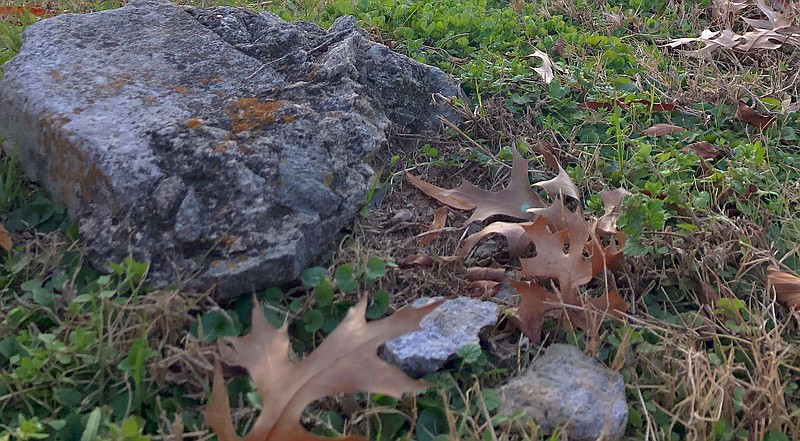The Rev. W.B. Hogg of Winfield Memorial Methodist Church in Little Rock preached the funeral service of Tom Slaughter on Dec. 13, 1921.
An advocate for humane treatment of prisoners, Hogg was an ally of Laura Conner, the lone female member of the state's Honorary Penitentiary Commission. Earlier in 1921, Conner militated in vain for the removal of Dee Horton as warden at Tucker Prison Farm, accusing him of brutality to prisoners.
Reporting one of Hogg's sermons Aug. 15, 1921, the Arkansas Gazette said he preached that crime is an offense against the law and punished by the law, as opposed to vice, the offense against self, and sin, the offense against God. Crime was "the result or the product of the aggregate social conditions of a given time."
What was crime 100 years before, Hogg said, was not necessarily crime in 1921, and what was counted as crime in 1921 might not be crime 100 years thence. The most effective tools
against crime were education and religious training, he said.
Hogg counseled several prisoners at Tucker Prison Farm, among them Tom Slaughter, who was serving a life sentence for killing Deputy Sheriff Row Brown during a shootout at Hot Springs. Slaughter asked Hogg to baptise him in winter 1920, and Hogg did.
In that same August sermon, Hogg said that he had "lost all faith in Tom Slaughter."
"Slaughter," he said, "has too many wives. I talked to them both recently, and each said that Tom was all she had."
Then, in September 1921, Slaughter murdered trusty Bliss Adkisson and grievously wounded other trusties while trying to escape the farm. He was condemned to death.
Here, as quoted by the Dec. 13, 1921, Arkansas Democrat, is what Hogg had to say over Slaughter's casket, which was fantastically adorned with an expensive floral arrangement paid for anonymously. After reading the burial service, Hogg said:
"On life's sea, the little bark of Tom Slaughter encountered many a storm and floundered through many a dreary, windswept night, and went down at last in tragedy on the rocks.
"There was much in his life that was wrong, yet those who knew him best often glimpsed a nobler nature. No man is wholly bad; in the common clay of human life, there often lie hidden sparkling gems.
"Around every cradle there is a halo of innocence; so we are certain that these cold hands were once chubby, baby hands and folded nightly in innocent repose. Wherever we wander, and whatever we become, God has decreed that we begin life in a democracy of innocence.
"What evil forces played upon this life to waft it to such stormy waters? If we knew as God now knows the outside evil that crowded close upon this soul, we might correct much of error and save many a wayward life. But the soul is locked in secrecy by the hands of deity; He alone has the right of entrance, and let us reverently pause at the doorway of a human heart!
"This we do know: Through all the storms and wrecks of his life, Tom Slaughter kept at least a bit of the treasury of nobler things. The curious, questioning world is certain the wand of babyhood still swayed his heart; he kissed the warden's grandchild affectionately before he dashed away on his mad chase for life. There abided an interest in others even as he planned to save himself. He entered the hospital for a visit with a sick convict and left him milk for his breakfast, lest in the confusion next morning there should be delay in preparing breakfast for the patients. His conduct was courteous and gentlemanly, even though he locked the ladies in the death cell.
"For the warden who would have electrocuted him within a few days, he had only kind words and highest respect, leaving the warden's family their breakfast, ready to serve. Even in the life of a bandit, such conduct attracts attention.
"The good in Tom Slaughter died hard. This adds some support to the contention of educators that we cultivate what we appeal to in a human soul. Slaughter had much to appeal to the evil in him and little to develop elemental nobleness.
"These beautiful flowers are mute witnesses of somebody's friendship. Somebody saw the gleam of better things and laid these tributes on the grave of a convict. The tragedy is that the eyes now filmed in death missed their inspiration when the soul was struggling for higher levels.
"Forget not that no fellow being yet
May fall so low that love may lift his head;
Even the cheek of shame with tears is wet,
If something good be said."
"Tom Slaughter has received a change of venue; the bailiffs are the sentinels that shine around the judgment seat of the Almighty; there justice, tempered with love and illuminated by omniscience, has doubtless rendered a decision. There the case must rest."
The poem Hogg quoted is "Say Something Good" by James Whitcomb Riley (see arkansasonline.com/1227poem).
■ ■ ■
Editor’s note: This story accompanies Part 3 in a series about Tom Slaughter's historic 1921 escape from the Arkansas state prison known as The Walls. Part 1 appeared in Style on Dec. 13, Part 2 on Dec. 20, Part 3 Dec. 27. See arkansasonline.com/1227part1 and arkansasonline.com/1227part2 and arkansasonline.com/1227part3
See arkansasonline.com/1227men for information about the seven escapees.
Email:
cstorey@adgnewsroom.com
